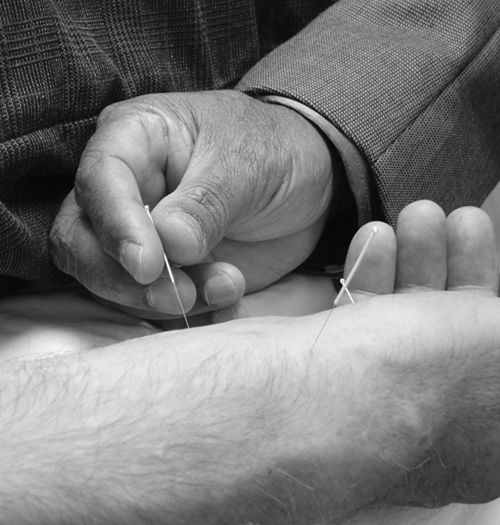Victoria Alarcon
Sports & Health Editor
As children growing up, we’ve always feared the visit to the doctor, and the inevitable needle shot had us trembling in our boots.
From cartoons to common sense, the idea of inserting anything with a sharp point into our body has been something we’ve always avoided. But that advice doesn’t always hold true – case in point: the art of acupuncture.
“Researchers are becoming interested in [acupuncture] to find out how it works, why it works and how well it works. There is more and more research showing the health benefits of acupuncture and the effectiveness of acupuncture,” said Dr. Mary Xiumei Wu, president of the School of Traditional Chinese Medicine.
Acupuncture dates back over two thousands years ago, in China, where the first needles, made of stone, were used. Acupuncture has grown from a virtually unknown technique to a practice accepted by physiotherapists to relieve sport injuries.

But what about acupuncture is so effective that the body just seems to heal and respond to it?
“From the scientific research point of view (the Western perspective) acupuncture stimulates the release of endorphins, which are the natural pain-killing substance in the body. That’s the scientific evidence to show how acupuncture works in order to alleviate pain.
“According to traditional Chinese medicine, acupuncture works because it removes the obstructions and stimulates the energy flow to alleviate the pain,” said Wu, who studied at the Shandong University of Traditional Chinese Medicine in China before moving to Canada and receiving her masters of science degree from the University of Waterloo.
“The body is full of energy” added Wu, “and the general idea is to regulate the energy in the body because the energy may get blocked. If it is blocked, you feel the pain and the discomfort, and acupuncture needles can remove the blockage.”
The merits of the energy-blockage explanation are still under debate, but the fact of the matter is that acupuncture health benefits, which range from pain relief in sport injuries to fertility, are supported by scientific studies.
A recent study reported by The Times of India found cancer patients who were undergoing radiotherapy felt less nauseous after acupuncture sessions compared to those who underwent standard care. Studies reported by ABC have even gone as far as to claim acupuncture may be the key to preventing mood swings associated with menopause, and that it may stop women from experiencing hot flashes.
“Acupuncture can help to improve digestion, calm the mind and boost confidence to alleviate pain,” said Wu. “There are clinical trials that show that acupuncture is good for back pains and can help to clear the mind and improve your study.” Wu isn’t the only one who’s voiced these benefits; The World Health Organization recognized that acupuncture can treat digestive and respiratory problems, addiction, insomnia, depression and anxiety.
The benefits are a lot to take in, but at the same time Wu believes that the reason a lot of people choose acupuncture over drugs and pills is because it’s a much more natural and simple approach to dealing with stress and back pain. “Why would you want to go through the invasive surgery or take drugs when acupuncture may be able to take care of it?” she asked. At the same time, Wu said acupuncture may not heal injuries as far as bone fractures with internal bleeding, where going to the hospital is the only treatment.
As for the most common question asked to acupuncturists, whether the thin-pricked needles hurt, Wu said that’s all dependent on who you go to.
“It depends on the technique and experience of the acupuncturist, so if they are very well experienced and have very good technique, then you don’t feel it much – a very gentle sensation,” she explained. “But if someone doesn’t know what to do or how to put the needles in, then it may hurt.”
What people often feel – and are supposed to feel – is some sort of sensation, added Wu. “Sometimes its numbness and sometimes you can feel a cooling sensation or a warming sensation or a tingling sensation.”
The treatment took a big leap recently, as the profession is now being regulated by the Ontario government to make sure that everyone who practices the treatment has to be qualified and meet all the requirements. The expectation is that in two years all acupuncture practitioners in Ontario will have to be licensed, explained Wu.
The growth of acupuncture brings a cheerful smile to Wu’s face. It’s her goal to see acupuncture being used by many.
“People need to realize that acupuncture and traditional Chinese medicine can help promote health and prevent disease and that acupuncture works very well in some cases.”
Getting to the the point of acupunture


